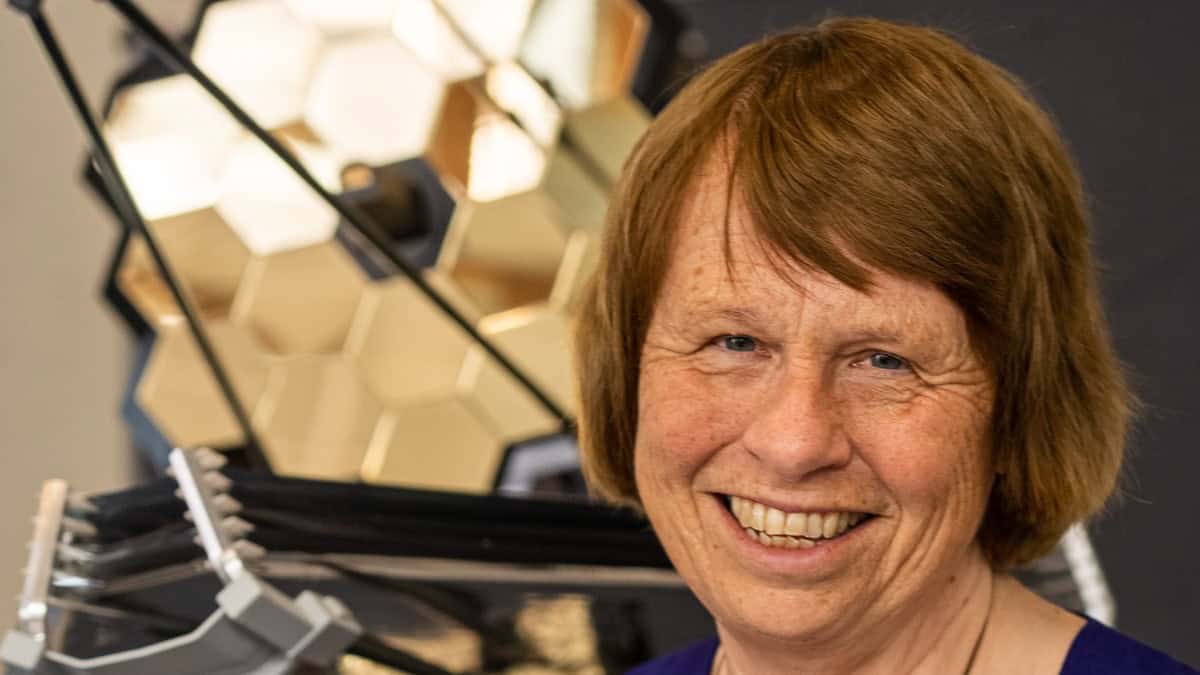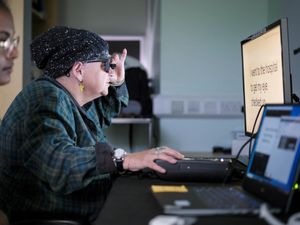Science
Ewine van Dishoeck Discusses Breakthroughs in Astrochemistry

Renowned astrochemist Ewine van Dishoeck recently shared her insights into the field of astrochemistry during a detailed interview, highlighting her fervor for understanding the chemical processes that govern the universe. As a professor emeritus of molecular astrophysics at Leiden Observatory in the Netherlands, van Dishoeck has made significant contributions to the field, including being awarded the Kavli Prize in Astrophysics in 2018.
In the podcast, van Dishoeck discusses how her research integrates various disciplines, including astronomy, astrophysics, theoretical chemistry, and laboratory experiments. She emphasizes the complexity of astrochemistry, particularly focusing on unresolved questions, such as the formation of intricate molecules on microscopic dust particles in interstellar space.
The conversation shifts to the recent advancements in our understanding of exoplanets and protoplanetary discs. Van Dishoeck expresses optimism regarding the potential to observe signs of life on distant celestial bodies. Utilizing cutting-edge facilities like the Atacama Large Millimetre Array and the James Webb Space Telescope, she has been at the forefront of research that could redefine our comprehension of life beyond Earth.
Collaborative Challenges in Astronomy
Van Dishoeck elaborates on the collaborative nature of large-scale astronomy projects, discussing the complexities involved in achieving consensus among the astronomy community when establishing the parameters for new observatories. She views this collaboration as essential, ensuring that the instruments developed meet the diverse requirements of various research sectors.
As the field of astrochemistry evolves, van Dishoeck envisions a future where next-generation observatories will further enhance our knowledge of the universe. The interview concludes with a heartfelt message directed at aspiring scientists, urging them to consider careers in astrochemistry and contribute to this vital area of research.
The podcast is sponsored by the Kavli Prize, which honors outstanding scientists for their fundamental research breakthroughs in astrophysics, nanoscience, and neuroscience. Each year, $1 million is awarded in each of these three fields, highlighting the commitment to advancing scientific knowledge.
The Kavli Prize is a partnership that includes the Norwegian Academy of Science and Letters, the Norwegian Ministry of Education and Research, and the Kavli Foundation based in the USA. This initiative was inspired by Fred Kavli, a Norwegian-American entrepreneur who dedicated his life to supporting scientific research. The prize operates on a two-year cycle, with nominations open from July 1 to October 1 in odd-numbered years, while the announcement and ceremony occur in even-numbered years. The next Kavli Prize is set to be announced in June 2026.
For more details about the Kavli Prize and its initiatives, visit kavliprize.org.
-

 World5 days ago
World5 days agoCoronation Street’s Shocking Murder Twist Reveals Family Secrets
-

 Entertainment4 months ago
Entertainment4 months agoKate Garraway Sells £2 Million Home Amid Financial Struggles
-

 Entertainment3 months ago
Entertainment3 months agoAnn Ming Reflects on ITV’s ‘I Fought the Law’ Drama
-

 Entertainment2 days ago
Entertainment2 days agoAndrew Pierce Confirms Departure from ITV’s Good Morning Britain
-

 Health3 months ago
Health3 months agoKatie Price Faces New Health Concerns After Cancer Symptoms Resurface
-

 Entertainment4 weeks ago
Entertainment4 weeks agoCoronation Street Fans React as Todd Faces Heartbreaking Choice
-

 World4 weeks ago
World4 weeks agoBailey Announces Heartbreaking Split from Rebecca After Reunion
-

 Entertainment1 week ago
Entertainment1 week agoTwo Stars Evicted from I’m A Celebrity Just Days Before Finale
-

 World1 week ago
World1 week agoKevin Sinfield Exceeds Fundraising Goal Ahead of Final Marathons
-

 Entertainment3 months ago
Entertainment3 months agoCoronation Street’s Carl Webster Faces Trouble with New Affairs
-

 Entertainment3 months ago
Entertainment3 months agoWhere is Tinder Swindler Simon Leviev? Latest Updates Revealed
-

 Entertainment4 months ago
Entertainment4 months agoMarkiplier Addresses AI Controversy During Livestream Response





















